Scrum Questions: Seven Simple Issues and Complex Answers from LinkedIn Polls
TL; DR: Scrum Questions: Seven Simple Issues and Complex Answers
How hard can Scrum be; the manual has 13 pages? You may have heard something along this line from skeptics in the past, dismissing the complex nature of an intentionally incomplete framework. The point is that exciting discussions happen when you start digging a bit deeper. Supposedly simple Scrum questions often return a broad spectrum of answers, ideas, and opinions.
Therefore, for some months now, I have run polls on LinkedIn. The polls address topics like the implications of self-management, how the management or corporate hierarchy fits into the picture, and the relationship between Scrum and agile coaching.
Let me share some of the controversial findings and discussions with you. As always, there are no simple answers in complex environments.

🗞 Shall I notify you about articles like this one? Awesome! You can sign up here for the ‘Food for Agile Thought’ newsletter and join 33,000-plus subscribers.
🎓 Join Stefan in one of his upcoming Professional Scrum training classes!

Seven Simple Scrum Questions and Their Complex Answers from LinkedIn Polls
Please find following seven LinkedIn polls on Scrum fundamentals, covering topics from the implications of self-management—can a Scrum team ditch Scrum—, how the management or corporate hierarchy fits into the bigger Scrum picture, and the relationship between Scrum and agile coaching: Do we need agile coaches when we practice Scrum?
Given the constraints of the LinkedIn polling tools—there is a maximum of four answers per poll—I encourage you to have a thorough look at the respective comment threads. Interesting discussions are happening there:
Scrum and Self-Management #1: Ditching Scrum?
Let us delve into a controversial topic: What is your take: Can a Scrum team decide to ditch Scrum?
Poll question: Can a Scrum Team decide to abandon Scrum, given that self-management is a first principle of Scrum?
Votes: 471; comments: 108.
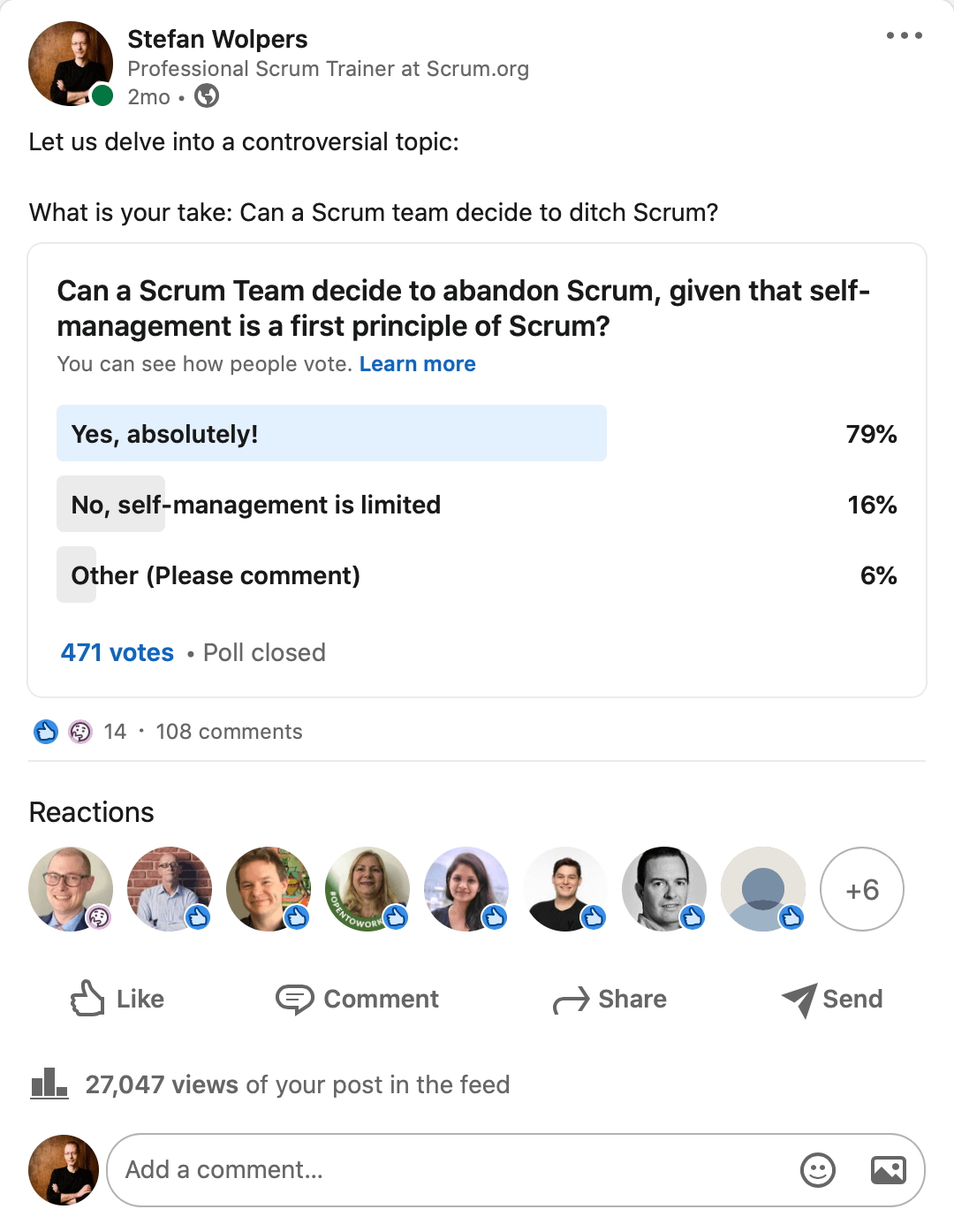
Scrum and Self-Management #2: Skipping Retrospectives?
Can a Scrum team decide to skip the Retrospective? Maybe, things are just fine as they are, and having the retro would be merely mechanical, not serving a purpose. Or they desperately need a bit more time to accomplish the Sprint Goal. What is your take?
Poll question: Can a Scrum team simply skip the Retrospective?
Votes: 2,062; comments: 263.
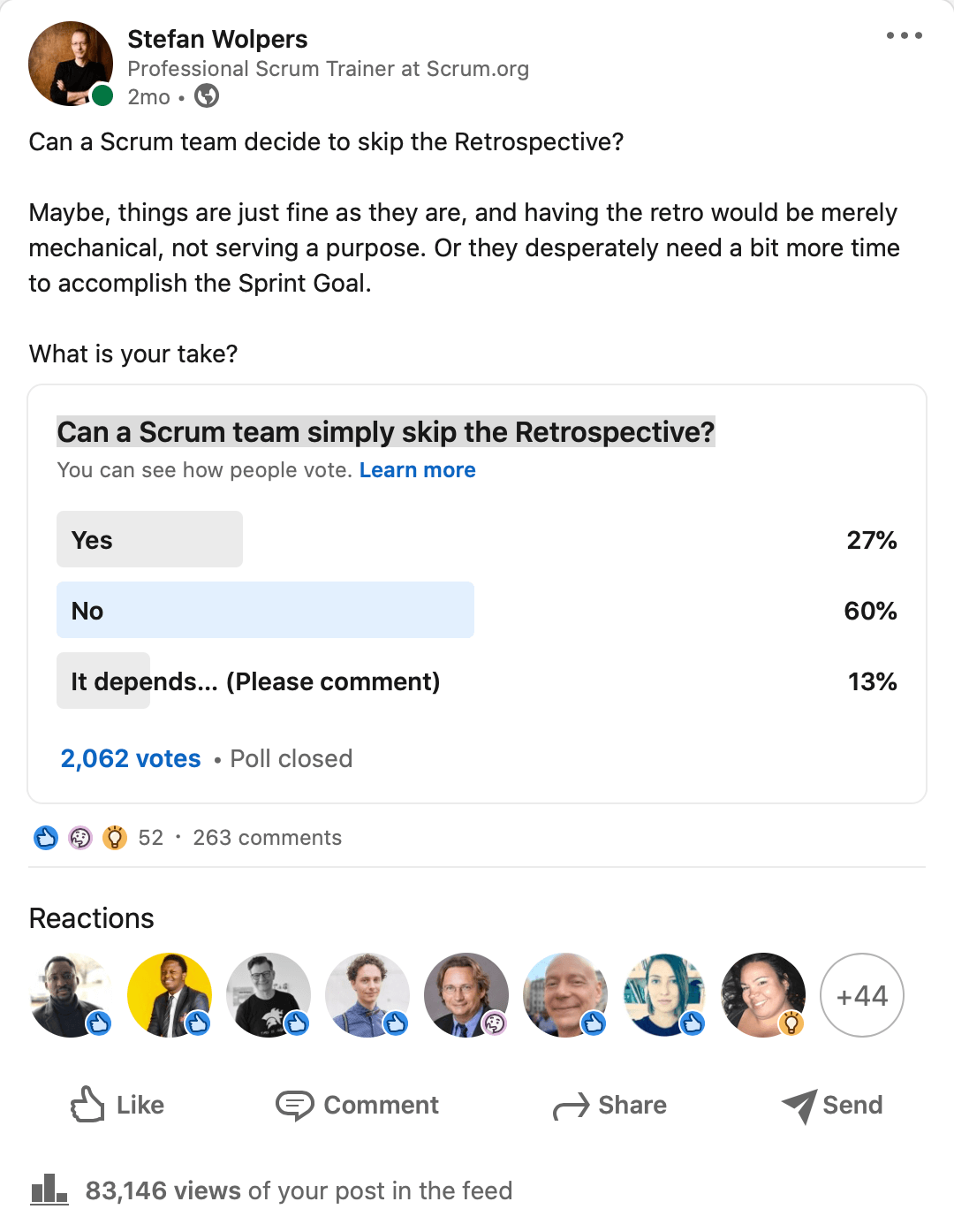
Cannot see the form?
Please click here
Scrum and Self-Management #3: Management Anti-Patterns
One of Scrum’s first principles is self-management. It is based on the idea that the people closest to a problem are best suited to find a solution.
Poll question: What management behavior have you observed that undermines this first principle of Scrum?
Votes: 252; comments: 22.
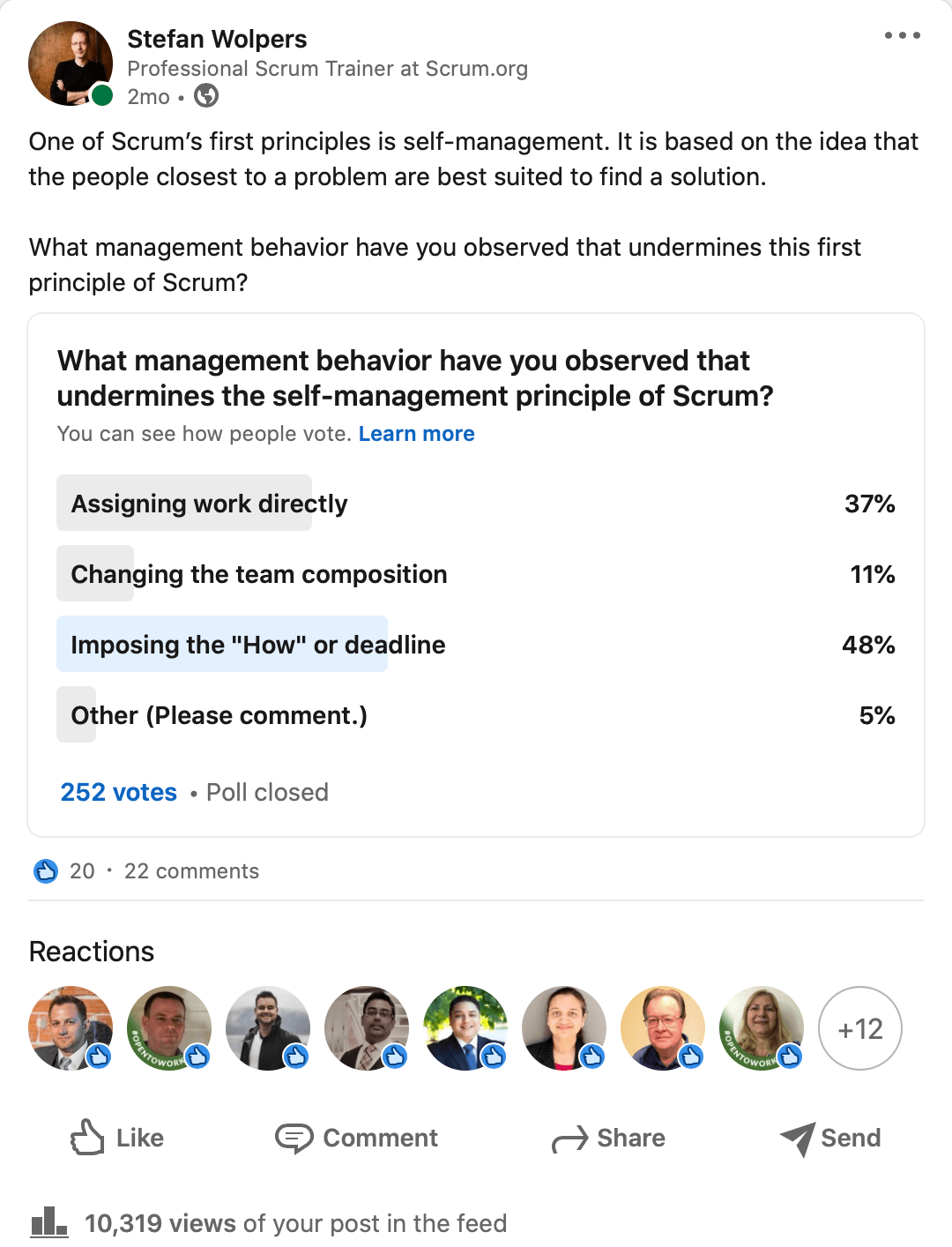
Scrum and Management: Line Managers Attending Retrospectives?
The line manager of your Scrum team insists on attending your team’s Retrospectives. Otherwise, they would not be able to guide or support you. What is your opinion?
Poll question: Should Managers Attend Retrospectives?
Votes: 1,183; comments: 183.
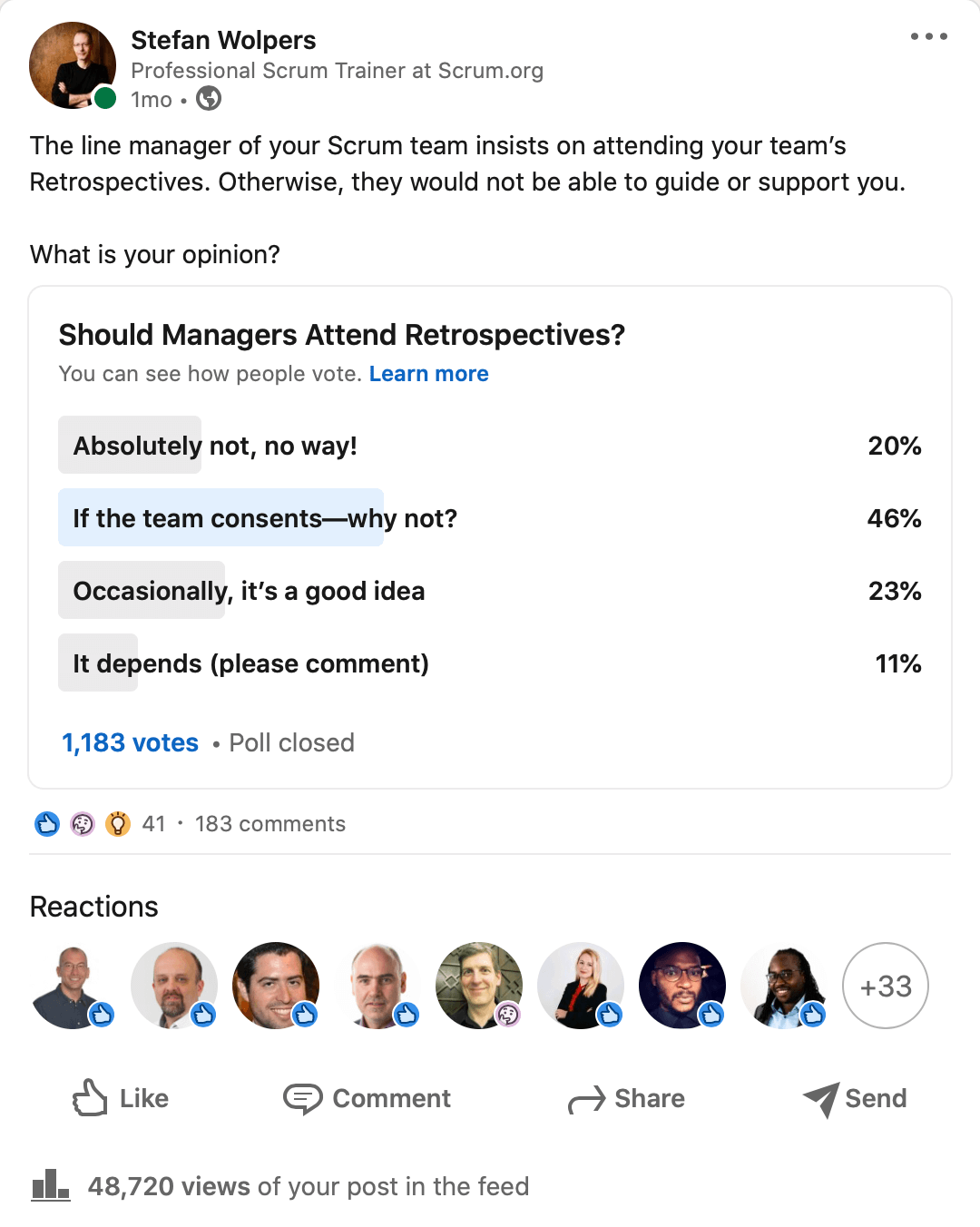
Scrum and the Organization: Do We Need Agile Coaches When There Are Scrum Masters?
Do We Need Agile Coaches when Practicing Scrum? There seems to be a trend—particularly in larger organizations—where the Scrum Master is considered a operational role at the team level, while the agile coach deals with organizational issues and the management. Is that true?
Poll question: Do We Need Agile Coaches when Practicing Scrum?
Votes: 728; comments: 132.
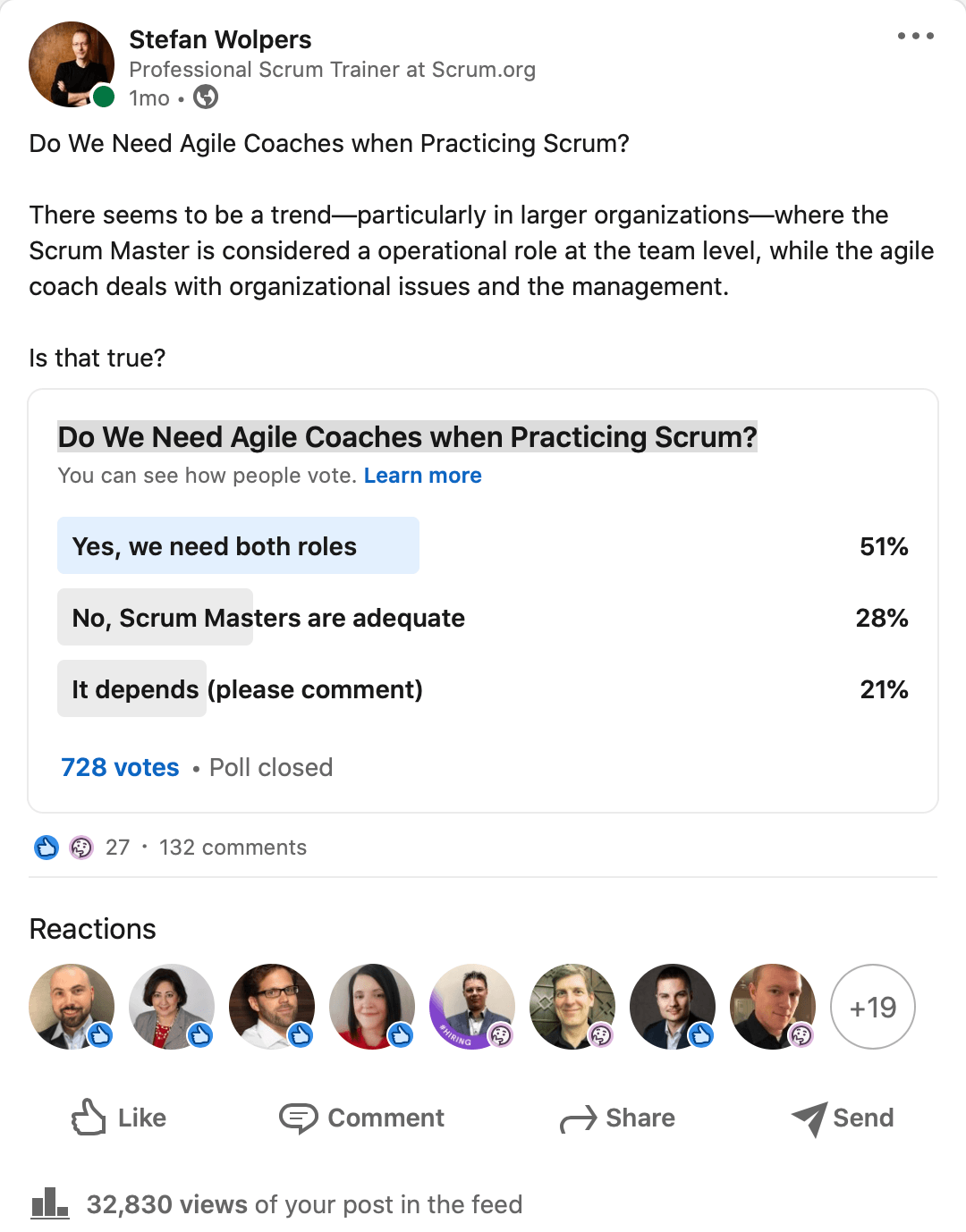
Scrum and Metrics: Estimates and Estimation
What is your take on estimates — beneficial to the team or too risky, as they might be misused?
Poll question: Are estimates valuable to a team? Or are estimates risky as they might lead to velocity, performance management, and stack-ranking?
Votes: 501; comments: 134.
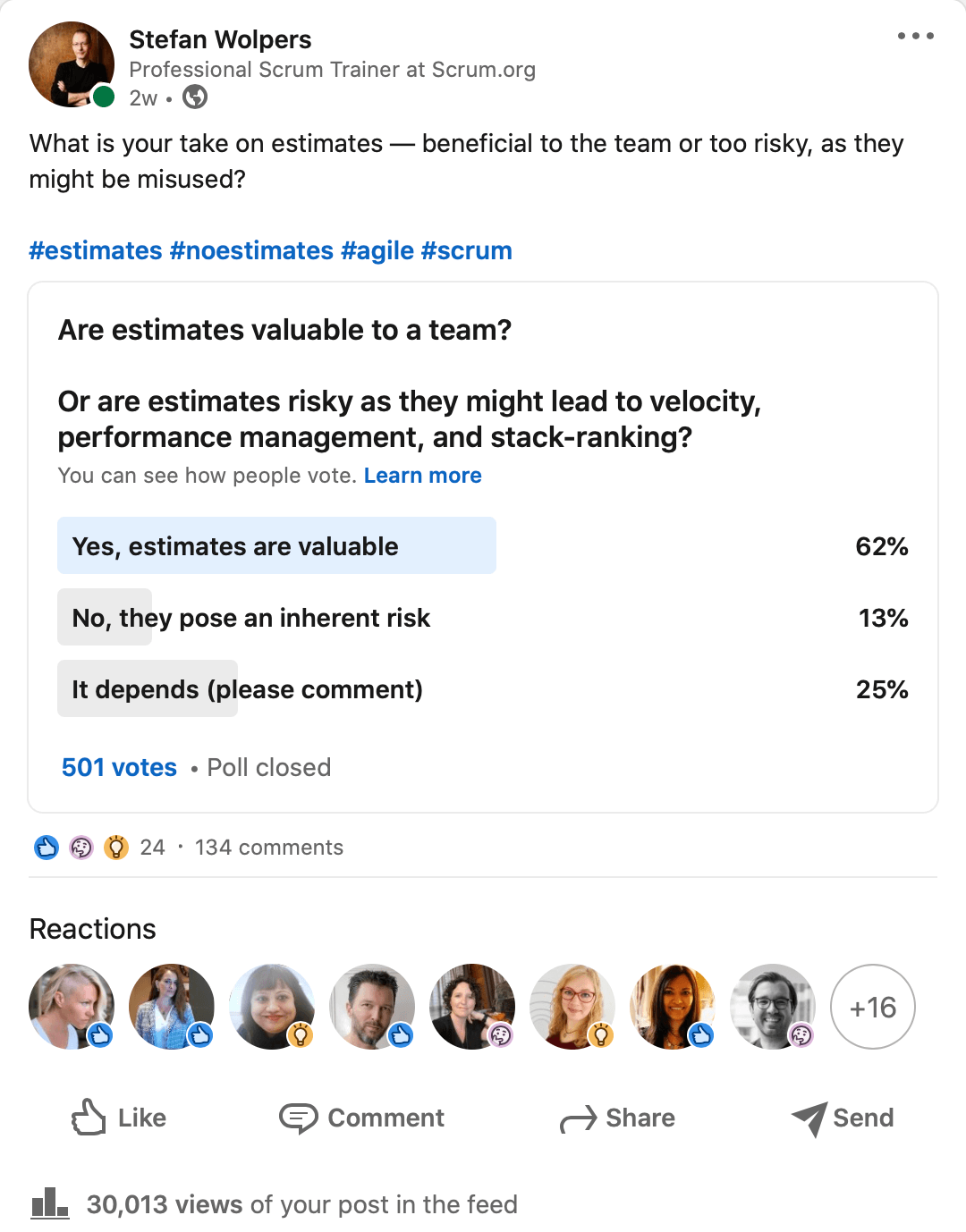
Scrum and Stakeholders: Skipping Sprint Reviews?
A Sprint Review without Stakeholders? Again, at the end of the Sprint, none of your stakeholders is joining the Sprint Review. Shall the team have it anyway, although they are familiar with the outcome?
Poll question: Does it make sense to have a Sprint Review when no stakeholders—internal or external—are present?
Votes: 495; comments: 82.
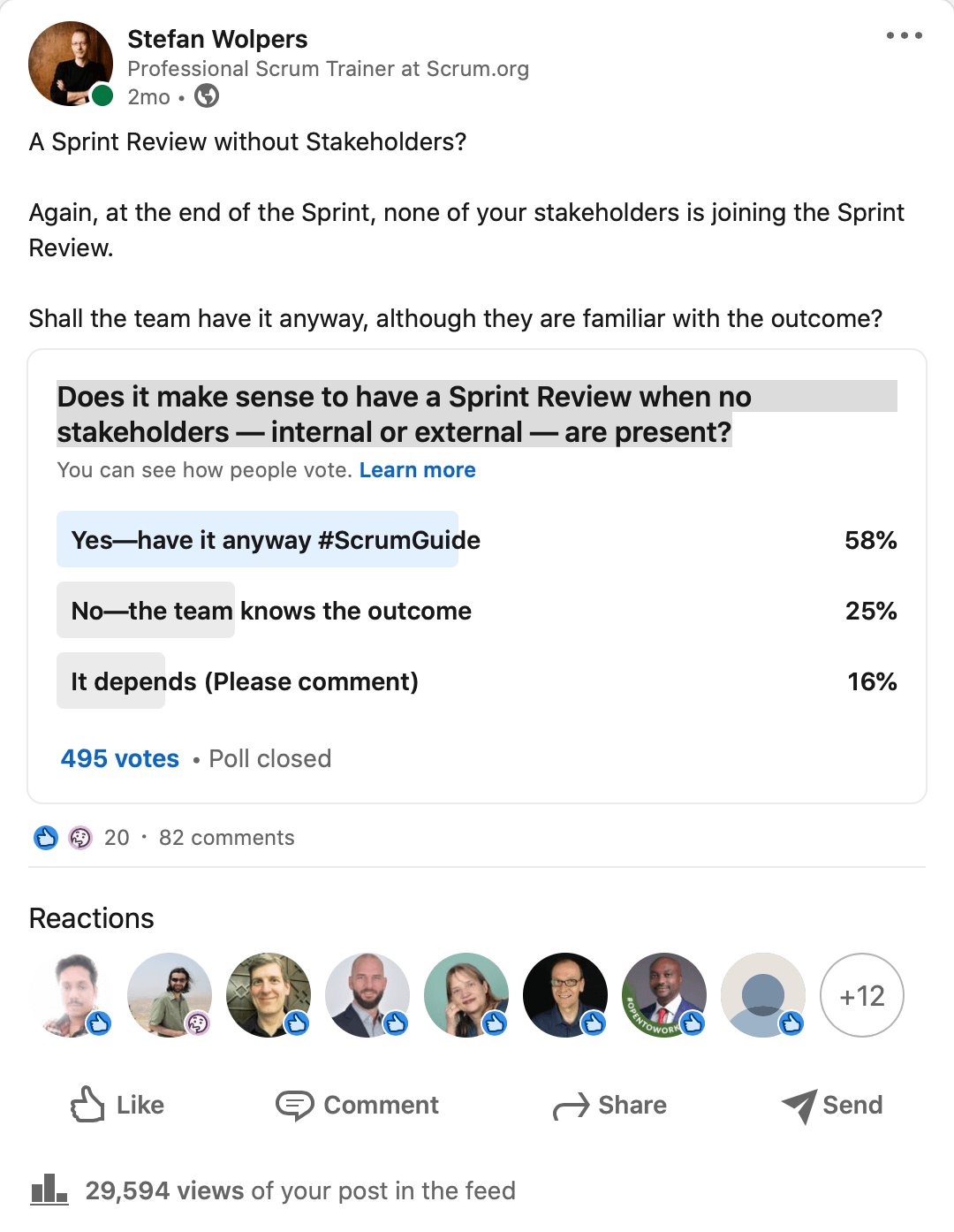
Conclusion
Supposedly simple Scrum questions regularly result in a broad spectrum of ideas, notions, and opinions. Often, there is no single “true” answer to a question as a solution likely depends on context and circumstances. Complexity has its challenges, and Scrum is no exception: “The Scrum framework is purposefully incomplete, only defining the parts required to implement Scrum theory.” (Source.)
How do you gain insight into controversial topics? Please share your approach with us in the comments.
Scrum Questions: Recommended Reading
Estimates Are Useful, Just Ditch the Numbers
Do We Need Agile Coaches when Practicing Scrum?
Cargo Cult Agile: The ‘State Of Agile’ Checklist For Your Organization
Scrum First Principles — How to Elon Musk the Scrum Guide
Download the Scrum Anti-Patterns Guide for free.
✋ Do Not Miss Out and Learn more about Tricky Scrum Questions — Join the 10,000-plus Strong ‘Hands-on Agile’ Slack Community
I invite you to join the “Hands-on Agile” Slack Community and enjoy the benefits of a fast-growing, vibrant community of agile practitioners from around the world.

If you like to join all you have to do now is provide your credentials via this Google form, and I will sign you up. By the way, it’s free.
📅 Scrum Training Classes, Workshops, and Events
You can secure your seat for Scrum training classes, workshops, and meetups directly by following the corresponding link in the table below:
See all upcoming classes here.

You can book your seat for the training directly by following the corresponding links to the ticket shop. If the procurement process of your organization requires a different purchasing process, please contact Berlin Product People GmbH directly.
Tags: Scrum Anti-Patterns, Scrum Guide